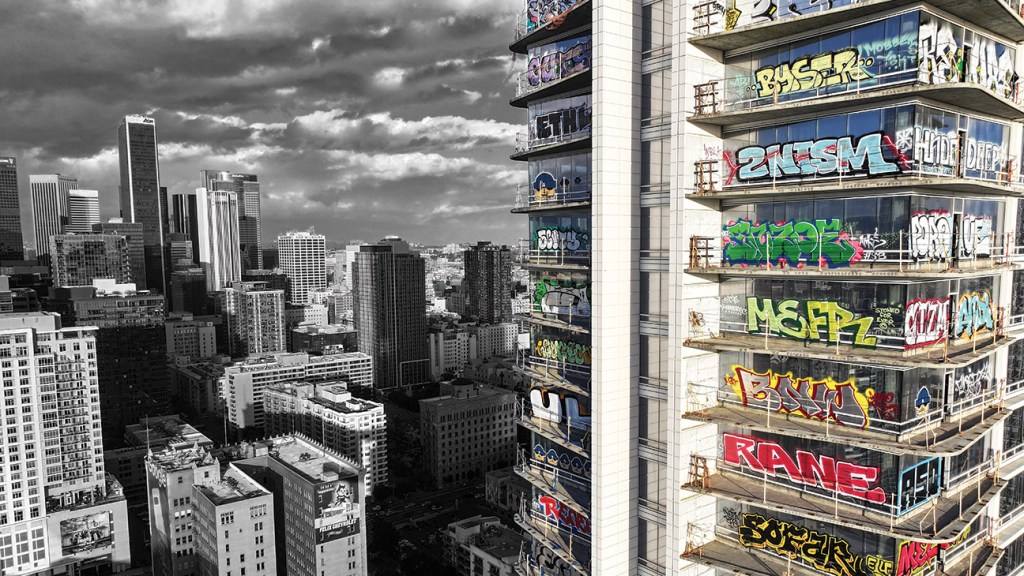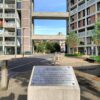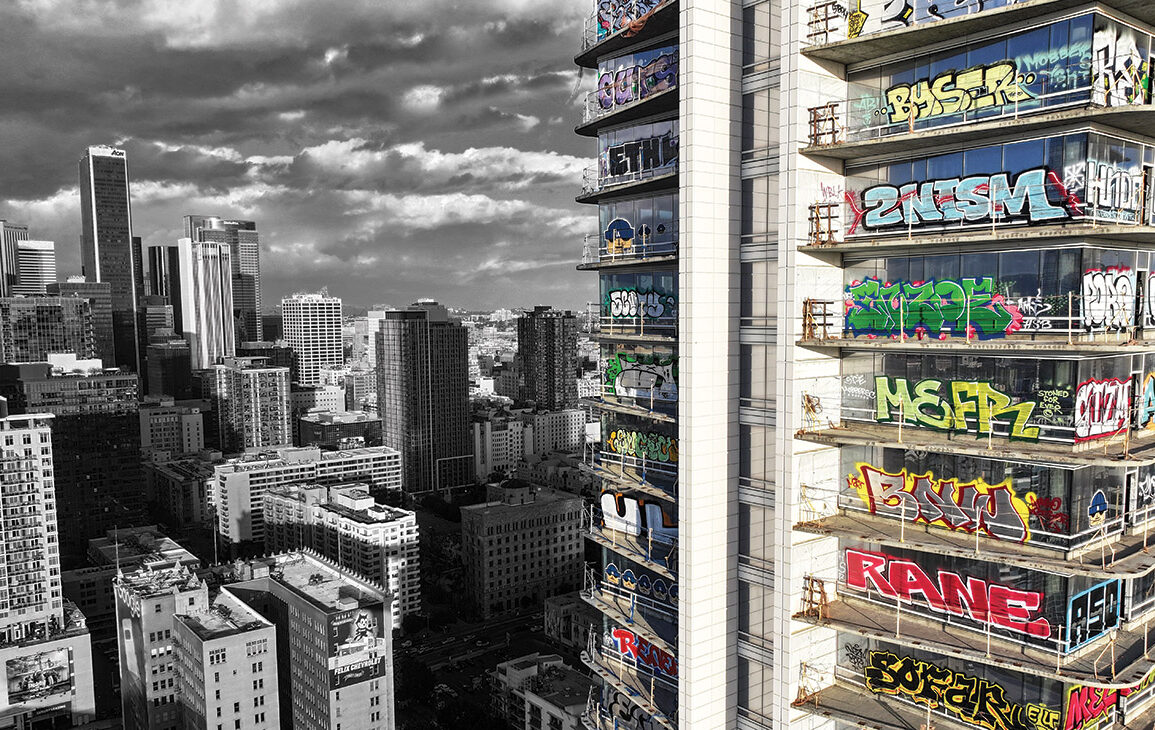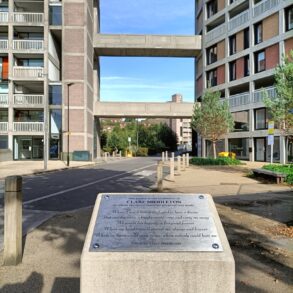
It’s the 30-story elephant on the Los Angeles skyline — and seemingly no one, including Mayor Karen Bass, has decided what to do about it. The Oceanwide Plaza luxury development has stood next to Crypto.com Arena vacant and half-finished since 2019, when its Chinese developer, having already spent $1.1 billion on it, ran out of money.
In December, three L.A. taggers — Akua, Sour and Castle — broke into the highest of Oceanwide’s three towers and spray-painted their names across its floor-to-ceiling windows. The daring stunt served as a bat signal to the rest of L.A.’s graffiti community, including prolific tagger Endem, who dreamed of seeing his own name in 13-foot-tall block letters adorning the building.
“A lot of people were actually hitting me up on Instagram,” says Endem. “Like, ‘What’s up with that building?’ It was the talk of the town within the community, but no one had the balls to hit it.”
All that changed Feb. 3, however, when Endem and his NCT crew maneuvered their way past the site’s single, elderly security guard, huffed and puffed up 28 flights of stairs, and added their own signatures to Oceanwide Plaza. Dozens more taggers followed. Within 24 hours, one full tower had been covered; by Feb. 6, all three had.
Drone footage of the now spray-paint-scrawled towers quickly proliferated across social media. L.A.’s graffiti community, meanwhile, was ecstatic over what they had accomplished: The tower was visible for miles in every direction — including behind Trevor Noah at the Grammy Awards. “We went in as Knights of Night — all dark-black clothing, heavy backpacks full of spray cans,” says Street Graff, a graffiti videographer who documented the operation. “Now it stands as a representation of our beautiful graff community.”
L.A.’s newest landmark was born, whether residents liked it or not. The debate rages on: Some praise it as a spontaneous art happening that highlights the city’s housing crisis; others denounce it as vandalism and crime run amok, not to mention a massive eyesore.
The question now is what will become of the towers. Should they be demolished? Should the city seize them, complete them, and turn them into public housing? Or will they stand for decades as “ghost towers,” the kinds that loom over economically ravaged cities as a constant reminder of what could have been?
On Feb. 9, the L.A. City Council voted through a measure to have the buildings cleaned and secured and serve Oceanwide with the bill — which could be as high as $4 million. Should Oceanwide not comply by Feb. 17, presumably L.A. taxpayers will be stuck paying it. One problem: Oceanwide is now bankrupt, part of a massive real estate market crash in China valued in the hundreds of billions of U.S. dollars that also took down Evergrande, the country’s largest real estate developer.
Rick Caruso, 65, the billionaire developer of The Grove, the Americana and Palisades Village and a former L.A. mayoral candidate, scoffs at the city’s strategy in handling the graffiti: “This just goes to the depth, in my opinion, of foolishness on the leadership of the city,” Caruso says. “They’re not understanding the current situation. Maybe it’s because none of them have ever been in business, but who are they going to send the bill to?”
Caruso blames the Oceanwide situation on “a lot of bad policies” that have been going on for years: “I expressed this to Mayor Garcetti many, many times: L.A. is overly dependent on money coming in from China. The housing markets in downtown, especially around South Park, was mostly Chinese money. To have one of the great cities in the world dependent on one source of development dollars is really bad. That’s not the way great cities are built.
“The other problem is we’ve entered into this notion that criminal activity can somehow be explained away and accepted,” he continues. “And frankly, this is a manifest of weak policies, not holding criminals responsible for criminal acts, which has given people permission to do things because there’s no accountability.”
As for Caruso’s onetime political rival, Mayor Bass did not respond to repeat requests to comment for this story. A Bass aide, Zach Seidl, deputy mayor of communications, did provide this statement to THR, which alludes to BASE jumpers spotted leaping from the towers: “Right now, the City is working to prevent dangerous, potentially fatalstunts that also risk the lives of Angelenos on the sidewalks as well. Angelenos could fall off or be pushed off and we are working to prevent both while holding the owner of the building accountable for these expenses.”
This story appeared in the Feb. 14 issue of The Hollywood Reporter magazine. Click here to subscribe.
This post was originally published on this site be sure to check out more of their content.









